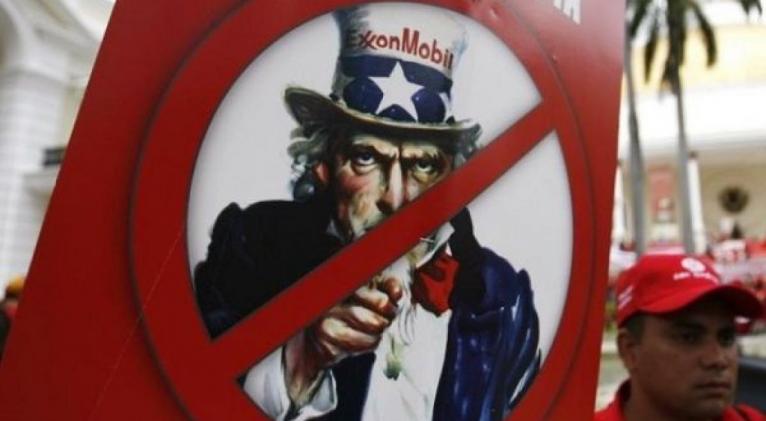On Thursday, a World Bank arbitration panel overturned a US$1.4 billion ruling against Venezuela for nationalizing one of Exxon Mobil’s major projects in the country after the election of late President Hugo Chavez in 1999.
RELATED: That Time Tillerson Tried to Take on Hugo Chavez ... And Lost
The World Bank's International Centre for Settlement of Investment Disputes overturned a 2014 ruling which ordered Venezuela to compensate Exxon Mobil for Chavez's decision to nationalize the multi-billion dollar Cerro Negro project in 2007.
"We were confident all along that our position was correct and are very pleased that the annulment committee agreed," Venezuela's lawyer George Kahale said.
Thursday's ruling is the second major victory for Venezuela in their 10-year legal battle against Exxon.

The original 2014 ruling was itself something of a victory given that Exxon Mobil had originally asked for US$10 billion in compensation for the expropriation of two major drilling projects.
The ICSID annulment panel ruled unanimously that the original 2014 tribunal decision had "exceeded its powers by failing to apply the proper law" in awarding even a much smaller judgment to Exxon Mobil.
A spokesperson for Exxon Mobil said Thursday the U.S. based oil giant will review its legal options, which could include requesting a resubmission of the case to a differently constituted World Bank panel.
The panel’s ruling still requires Venezuela to pay US$179.3 million in compensation for Exxon Mobil's La Ceiba project.
ANALYSIS: Chavez' Legacy in Venezuela: Transforming Millions of Lives
"I would imagine that Exxon Mobil cannot be happy with this outcome after 10 years of litigation and will resubmit the award for a second opinion," said Russ Dallen, an international lawyer who follows Venezuela, in an interview with the Latin American Herald Tribune.
The former head of Exxon Mobil, Rex Tillerson, had launched the case against Venezuela before becoming Donald Trump's Foreign Secretary.
During his confirmation hearings, Tillerson signaled that he would work towards regime change in Venezuela by cooperating with "our friends in the hemisphere, particularly Brazil and Colombia," as well as the Organization of American States.
Venezuela is currently contesting 24 cases at the ICSID related to a series of nationalizations after the victory of the country's wildly popular Bolivarian Revolution.
The Chavez government took back control of various commodity sectors — including electricity, telecom, mining, and agriculture — which for years had been controlled by foreign multinationals, and used the profits from these expropriations to fund its ambitious social programs which saw millions lifted out of poverty.














Add new comment